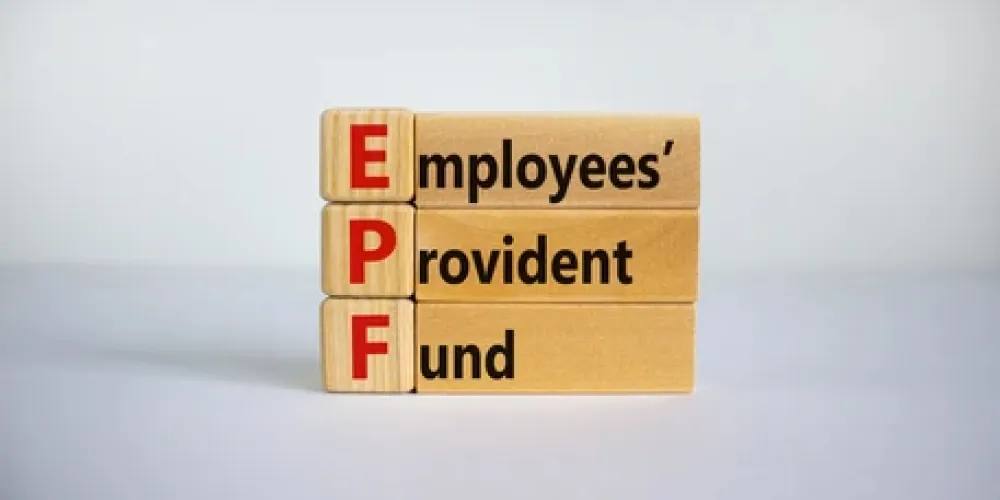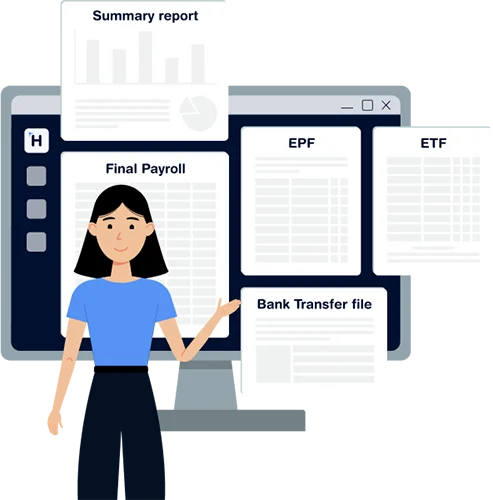We have already explored EPF in brief based on the previous articles, and we will now be considering a detailed guide on EPF for your small business.
What is EPF?
The Employees’ Provident Fund (EPF) is the largest and the broadest social security scheme in Sri Lanka, established under the EPF Act No.15 of 1958. At the end of 2020, the EPF had an asset base of Rs. 2814 billion, which provides a little ‘Peace of Mind’ for employees in the private sector, state-funded companies, statutory boards and private businesses.
What are the EPF and ETF rates in Sri Lanka?
According to the EPF Act No. 15 of 1958, the mandatory minimum contribution rate for the EPF members is currently 20% of their gross monthly earnings. The employers and the employees are obligated to pay 12% and 8% of their monthly gross salary, respectively to the EPF.
On the other hand, the employees don’t have to contribute to the ETF. However, employers from the government and private sector have to contribute to the ETF on behalf of their employees. Accordingly, employers have to contribute 3% every month to the ETF.
The EPF Act No. 15 of 1958
Knowing the EPF Act No. 15 of 1958 is vital as it governs how the EPF is carried out in Sri Lanka. It sets out all the rules, penalties and other regulations that need to be adhered to for the effective operation of the EPF.
The EPF Act No. 15 of 1958 mainly established the EPF to protect retired employees in the government and private sectors and to reward employees for their contribution to the economic growth of Sri Lanka.
For more information about the EPF Act No. 15 of 1958, here’s an option for you to download the EPF Act Sri Lanka PDF: EPF Act.pdf
How to calculate EPF in Sri Lanka
Most small businesses lack knowledge of calculating EPF in Sri Lanka, so we are taking the opportunity to provide you with a sufficient understanding of it. According to the EPF website, 8% of the employee’s total monthly earnings (gross salary) should be deducted from the employee’s net salary. The employer has to contribute 12% of the employee’s total monthly income.
The following are the components which need to be taken into consideration when calculating the total earnings for EPF:
- Salary, wages or fees.
- Cost of living allowances, special living allowances and other allowances.
- Holiday payments.
- The cash value of cooked or uncooked food supplied by the employer to the employee.
- Food allowance.
- Any kind of remuneration.
- Commissions, piece-rate payments and contract basis payments.
The following components are excluded when calculating total earnings for EPF:
- Overtime payment.
- Reimbursable travelling expense.
- Incentives/Bonus.
Therefore, you need to know the components that need to be added when calculating EPF. This will be beneficial for you and your employees to understand how their EPF contributions are calculated.
EPF “C” Form
The employers will have to fill in the EPF Contributions on behalf of the employees and employer through a C Form.
The EPF Department of the Central Bank of Sri Lanka (CBSL) will post the details of the members (employees) in a printed C Form every month to small business employers who have less than 50 employees.
Employers can obtain a blank copy of a pre-printed C Form from the closest Labour Office for free, or they can download it from https://epf.lk/. Nevertheless, here’s a simple EPF C Form for you to download: C Form.pdf
3 copies of the C Form should be made. The original C Form should be submitted to the EPF Department of CBSL, the second copy should be forwarded to the closest Labour Office, and the employer should keep the third copy for future reference.
Are there EPF offices across Sri Lanka?
Most businesses don’t know this, but there are EPF offices across Sri Lanka which is a good thing as employers don’t have to travel from various parts of Sri Lanka to send in the EPF contributions to the EPF Department of CBSL, which is located in Colombo. There is the EPF Gampaha office and EPF Matara office. Apart from these two separate offices, there are Labour Departments which handle EPF within the Department of Labour branches across Sri Lanka, such as:
- District Labour Office – Negombo
- Department of Labour – Jaffna
- Department of Labour – Kandy
- District Labour Office – Nuwera Eliya
- Department of Labour – Badulla
- Polonnaruwa District Office
How can my small business remain on top of EPF Payments and compliance?
Your small business can remain on top of EPF payments and compliance effectively and efficiently if you keep the deadline of the EPF payments in mind and the potential fines you would incur if you don’t comply with it. Thus, you should note that the deadline to send in the monthly EPF contributions to the EPF Department of CBSL is on or before the last working day of each month. If not, the employer will be charged a surcharge for the delay. This delay surcharge is applicable for both overdue payments and underpayments. Below are the surcharge rates for the period of delay in EPF payments:
- 1 day – 10 days = 5%
- 11 days – 1 month = 15%
- 1 month – 3 months = 20%
- 3 months – 6 months = 30%
- 6 months – 12 months = 40%
- More than 12 months = 50%
Therefore, it’s vital that small businesses pay heed and comply with EPF payments on time in terms of overdue and underpayments to avoid hefty surcharge rates.
Therefore, we hope this article will be a useful EPF guide for your small business and deepen your knowledge and understanding of how the EPF process works in Sri Lanka.
Resources
https://epf.lk/?page_id=2
https://www.cbsl.gov.lk/en/employees-provident-fund
https://etfb.lk/employers-faq/
https://epf.lk/?page_id=811

